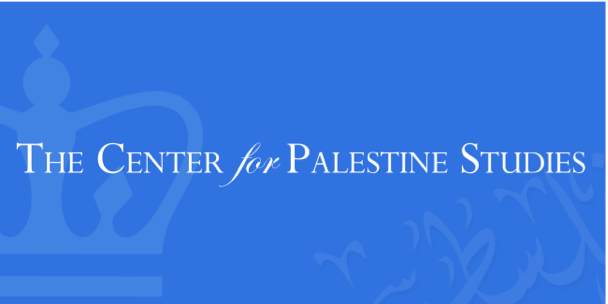The Center for Palestine Studies at Columbia University’s Middle East Institute is pleased to announce and to invite applications for the 2015-2016 Ibrahim Abu-Lughod Award, a post-doctoral fellowship in Palestinian Studies. The one-semester fellowship carries a stipend of $25,000 and the status of post-doctoral research fellow or visiting scholar at Columbia University, as appropriate.
About The Ibrahim Abu-Lughod Award in Palestine Studies
The Ibrahim Abu-Lughod Award is an annual fellowship at Columbia University, which was established in 2010. The award recognizes and seeks to foster innovative and ground-breaking scholarship on issues related to Palestine and Palestinians. The award will support a post-doctoral scholar working on a book project in any field of the humanities or social sciences.
The Fellow will spend one semester at Columbia University, pursuing her or his research and writing, and participating in the intellectual life of the Center for Palestine Studies at the Middle East Institute. In exceptional cases, as when research elsewhere is necessary for the completion of the project, shorter-term residence at Columbia (no less than 8 weeks during term time) can be considered. The Fellow will present a seminar paper in the Middle East Institute’s colloquium series and may be invited to speak at other universities in the United States.
This award has been made possible through the generosity of Abdel Mohsin Al-Qattan in honor of his friend, the Palestinian scholar and intellectual, Ibrahim Abu-Lughod (1929-2001). Their close friendship began in the aftermath of the nakbah of 1948 and evolved into a shared commitment to justice for Palestinians to be realized in part through support for excellence in higher education and scholarship. In later years, upon the establishment of the A.M. Qattan Foundation in Palestine, Ibrahim Abu-Lughod helped found the Qattan Centre for Educational Research and Development, one of the Foundation’s core programs. In recent years, other generous donors, including Sahar Huneidi, have contributed.
About the Center for Palestine Studies
Launched in 2010, the Center for Palestine Studies is the first such center to be established in an academic institution in the United States. The mission of the new Center is to promote the academic study of Palestine in all its forms and to offer a dedicated site for sustained interchanges among scholars and students. Center activities are intended to advance the production and circulation of knowledge on Palestinian history, culture, society, and politics in diverse fields, including history, literary studies, the social sciences, religion, philosophy, law, archaeology, the arts and architecture.
In its diverse activities, the Center for Palestine Studies will have a national and global reach. The Center is active in developing contacts with scholars and other institutions for the purposes of academic cooperation. Enhancements to the curriculum, library and faculty at Columbia will translate into new resources to advance the academic study of Palestine and Palestinians throughout the United States and the world.
Requirements & Eligibility
The international competition is open to all post-doctoral scholars who share the mission of the Center for Palestine Studies to advance the production and circulation of knowledge on Palestinian history, culture, society, and politics through outstanding scholarship. Preference will be given to individuals from underrepresented programs who would benefit most from the academic resources of Columbia University. The Fellow may not hold any other major fellowship or teaching obligations during the award period.
Application Process
The following list of materials is required for all applicants:
- Application Cover Sheet.
- Curriculum vitae. Should include Education (names and location of colleges, graduate and professional schools, with dates attended and degrees earned); Employment; Academic honors; Publications (Please do not send the publications); Languages read, spoken, and written.
- Three-page (1000 word) description of the book project on which fellow will work and its significance. Indicate how much has been completed and what you intend to do during the fellowship period.
- Fifteen-page writing sample—maximum. Can be an extract from a longer work.
- Two letters of recommendation. Recommendations should come from scholars familiar with the proposed project and the applicant’s qualifications. Letters should be e-mailed directly by the recommender to palestine@columbia.edu with the subject line: “IAL Recommend-[Applicant Last Name, Applicant First Name].” If they prefer to send their letters via mail, please ensure all letters are signed on university letterhead to the CPS address below. Applications will not be considered without two letters in the file, postmarked or emailed by February 15, 2015.
Application materials should be emailed or postmarked on or before February 15, 2015 with the subject line: “IAL Application-[Applicant Last Name, Applicant First Name].” All evaluations made in connection with applications received are confidential. Please return completed applications to: palestine@columbia.edu or mail to:
The Ibrahim Abu-Lughod Award in Palestine Studies
Center for Palestine Studies, Middle East Institute
Columbia University
Knox Hall, Room 301A
606 West 122nd Street
New York, NY 10027
USA
For More Information
Please visit our website: http://www.columbia.edu/cu/palestine/about/fellowships.html
